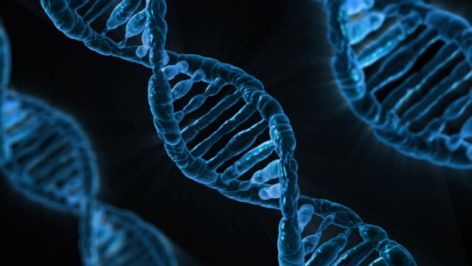Genetics and heredity provide possible explanations for why addictive behavior seems to run in families and why some people are more susceptible to addiction than others. However, actually identifying “addiction” genes has proven difficult, and most experts believe a combination of genetic factors, coupled with environmental influences, determines a person’s risk of addiction. A recent study from the Perelman School of Medicine and the Massachusetts General Hospital adds another layer of complexity to the issue. The study suggests cocaine addiction in parents causes epigenetic changes, giving children a resistance to cocaine’s effects. Defining Epigenetic Changes To understand this story it’s necessary to know a little about epigenetics. Defining epigenetic can be difficult, as scientists continue to argue about a firm definition. Basically, an epigenetic change occurs when a cell develops a hereditable change not associated with changes to the DNA sequence. Put very simply, cells “remember” certain developmental or environmental factors as they divide, and these “memories” are maintained when the cell divides. Some of these changes are inheritable, passing from parent to child. Therefore it’s possible for drug abuse to cause hereditary genetic changes. Fathers, Sons and Cocaine Resistance The study began with male rats, which learned to self-administer doses of cocaine. Once addicted to cocaine, the males were allowed to breed with non-addicted females. After breeding, the males were removed, to prevent their addictive behavior from affecting the mothers. The offspring were then allowed to self-administer cocaine. Researchers noticed the sons of the cocaine-addicted fathers were slower to develop cocaine addiction than female offspring and the control group of unrelated rats. Examination of the male rats’ brains revealed high levels of the chemical brain-derived neurotrophic factor, or BDNF. BDNF is known to reduce cocaine’s behavioral effects. It appears cocaine addiction caused epigenetic changes in the fathers’ sperm, changes that passed from father to son. Why only the sons of cocaine-addicted male rats developed a resistance to cocaine is unclear. Researchers speculate sex hormones may have played a role, making the epigenetic change gender-specific. Study Implications It’s important to remember the study examined epigenetic changes in rats, and rats are not human. Whether or not cocaine produces the same epigenetic changes in humans remains unproven, although rats and humans respond to cocaine in similar ways. The study opens up speculation about the effect drug abuse has on children, if it is possible to have a positive effect. If cocaine can cause hereditary changes, it’s possible alcohol and other drugs produce their own epigenetic effects. Male offspring in the study benefited from their father’s addictions, but we have no guarantee all drug-related epigenetic changes would be as positive. Could epigenetic changes explain developmental delays and behavioral problems seen in the children of drug-users? It’s too early to tell with any certainty, but the study provides yet another compelling reason to seek help if you suffer from a drug or alcohol dependency. (Photo via)

